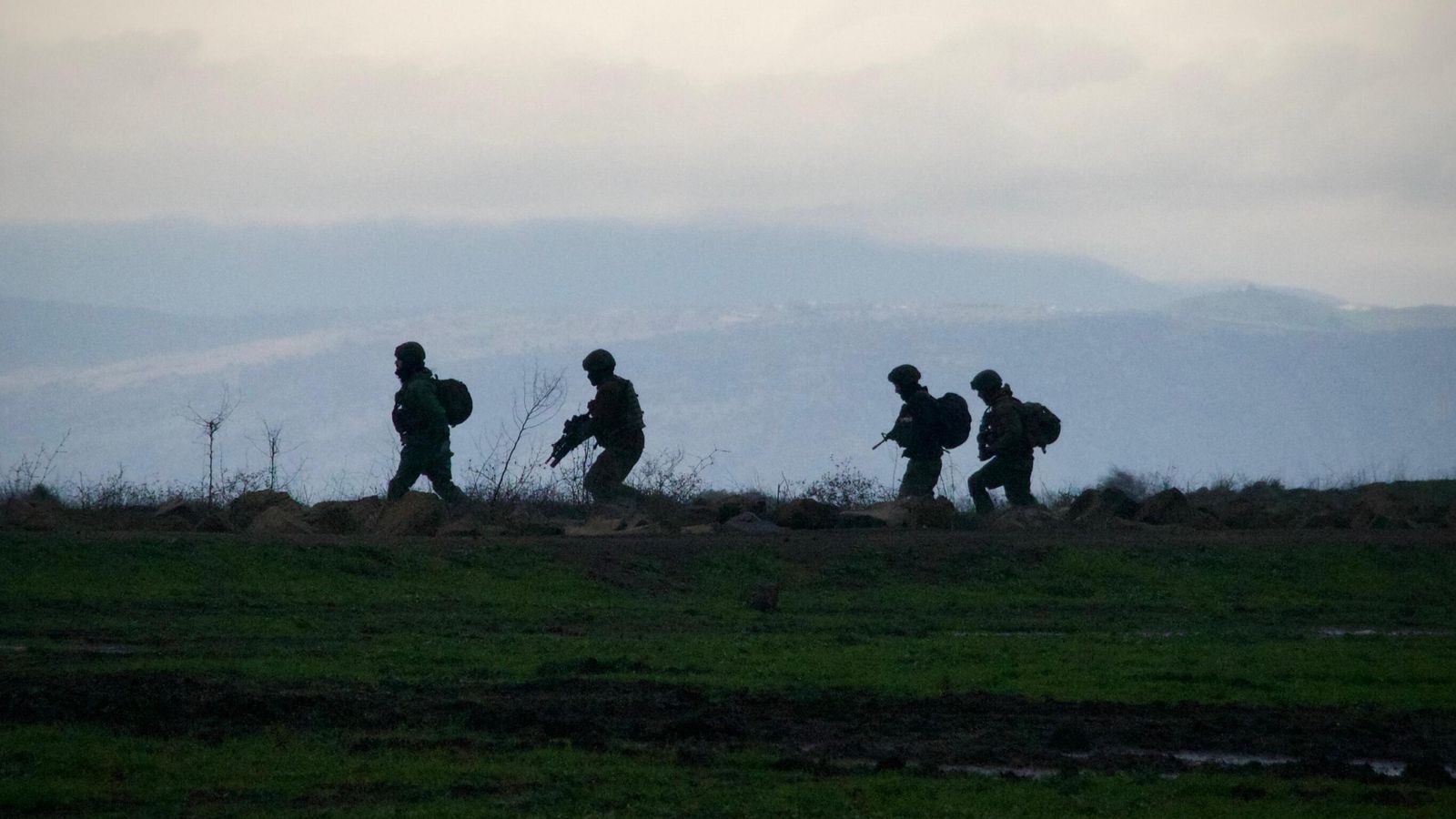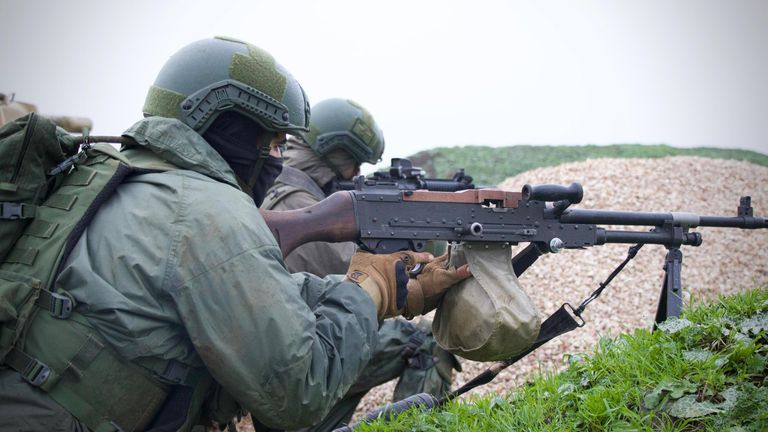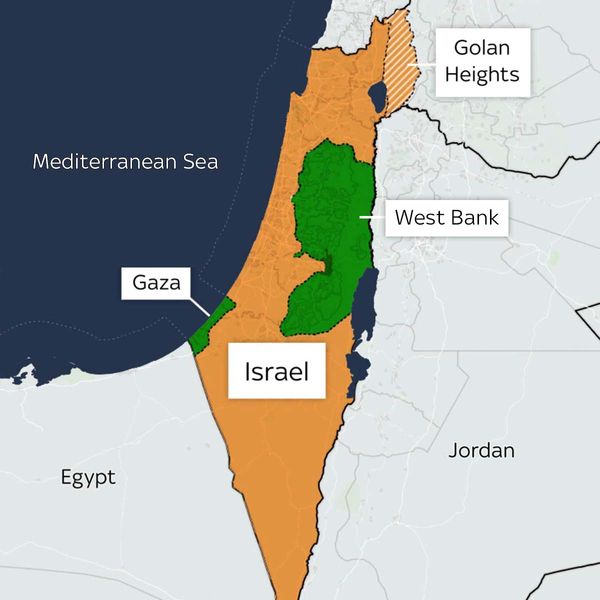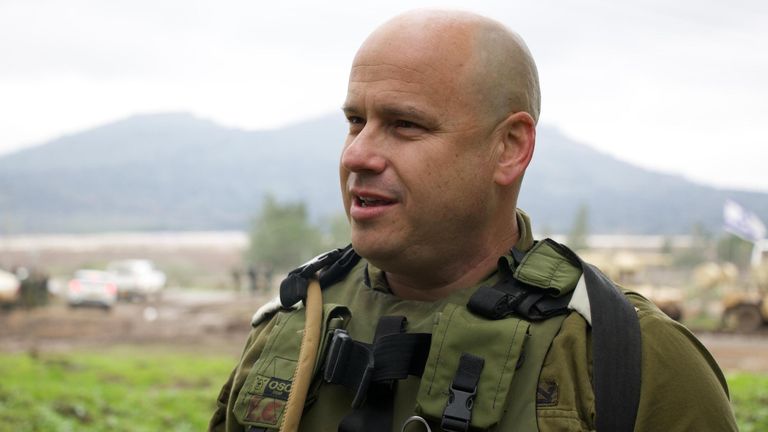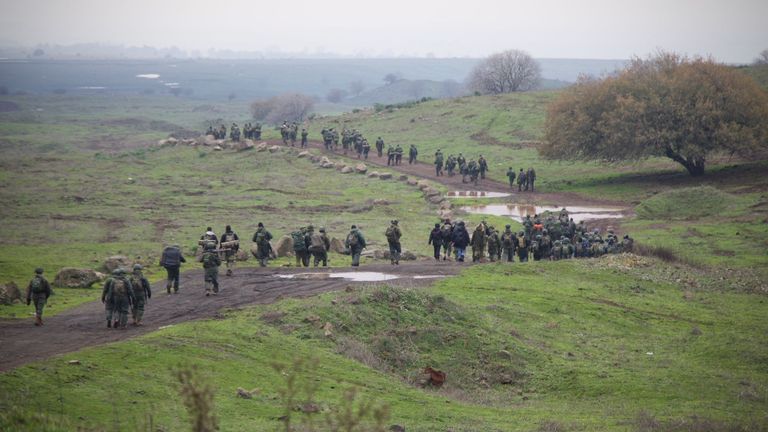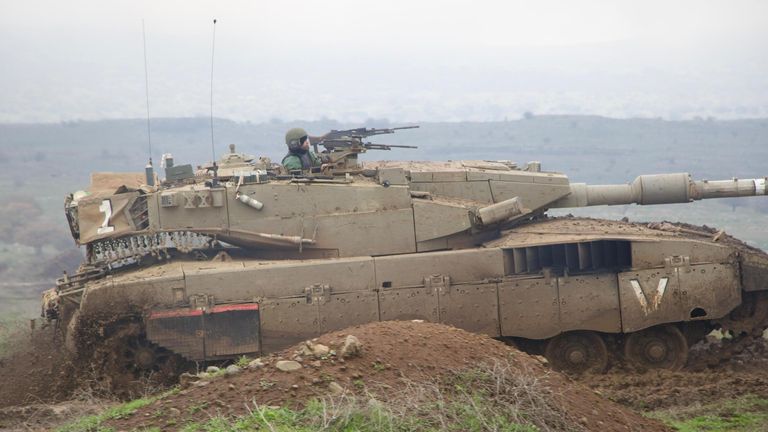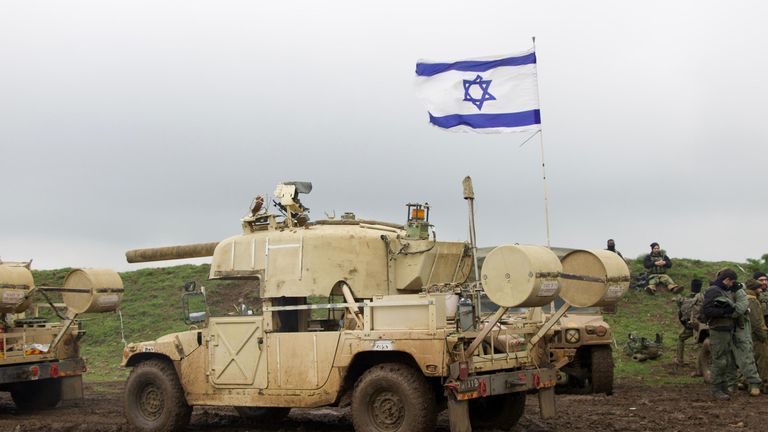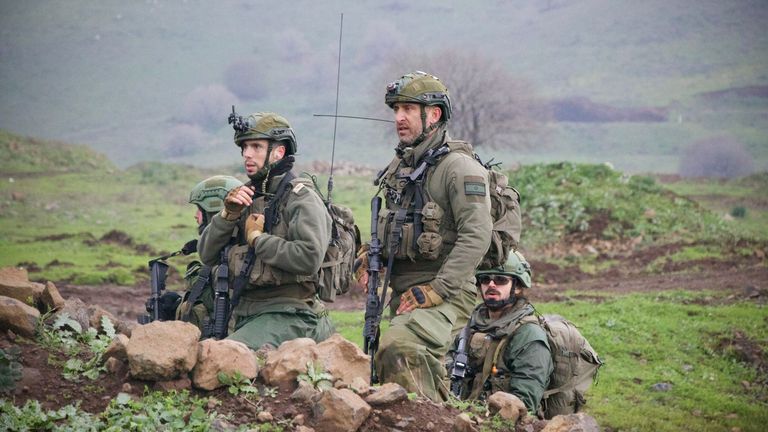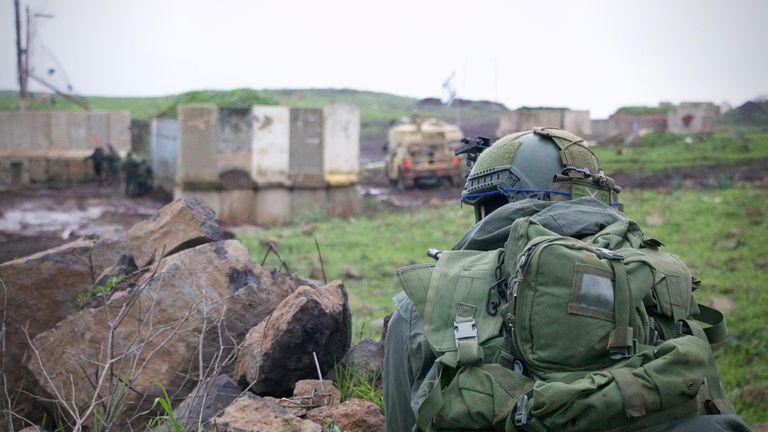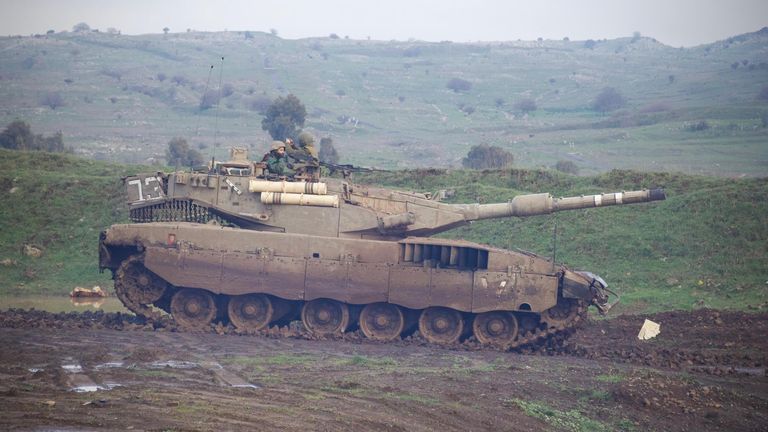I put my ear plugs in and take a step back. The flash from the tank barrel comes first, then the boom.
Snipers to my left open fire. Red machine gun tracer fire zips towards the village and laser guided artillery thuds into walls.
Israeli paratroopers are attacking a mock Hezbollah village. It’s a drill, but any day now it could be for real.
A decision whether to invade Lebanon has not been made yet, but the Israeli government has made increasingly hawkish statements and all the soldiers I spoke to privately said they thought it would happen.
It would be a bloody war for both sides though. Hezbollah is much bigger, better armed and battle hardened than Hamas, but Israel’s commanders believe they would ultimately prevail.
Follow latest: Houthis undeterred by new UK-US strikes
“We don’t take their readiness lightly,” a senior officer tells us. “And we obviously learn about their readiness and their experience to fully understand our opponents and our enemies.
“But it doesn’t intimidate us. I believe that the IDF throughout and my unit especially – are much better trained and equipped than Hezbollah.”
There are daily exchanges of fire between Israel and Hezbollah across the border, enough in normal times to have started a war already. These are not normal times though, but they are dangerous ones.
The Golan Heights in winter are cold and rainy. Low cloud wraps itself around the hills and the wind whips though the valleys. Think the Peak District, rather than what one might imagine the Middle East to be.
The region has been fought over many times. It is now Israeli occupied land, annexed after the 1967 war and surrounded on one side by Syria, and the other by Lebanon – both enemies of Israel.
Old Syrian bunkers run deep into the hillsides as a reminder of past wars and past owners of this land.
Read more from Sky News:
US and UK launch fresh strikes against 36 Houthi targets in Yemen
UK’s war readiness in doubt as HMS Queen Elizabeth set to miss NATO drills
Today it is again highly militarised, as Israel prepares for another war with Lebanon.
Even if there was a ceasefire, and Hezbollah stopped firing rockets into Israel, it might not be enough to prevent war because the Israelis have been very clear that they want to push Hezbollah back, deeper into southern Lebanon in accordance with a UN resolution.
And if diplomacy doesn’t work, they’ll use the IDF to do it.
Israel also violates that UN resolution by flying through Lebanese airspace and occupying some land that they were supposed to give back under international law.
A diplomatic solution to avoid war will need to work both ways.
But diplomacy, so far, seems to have made little progress and Israel is giving signs that it might be running out of patience.
